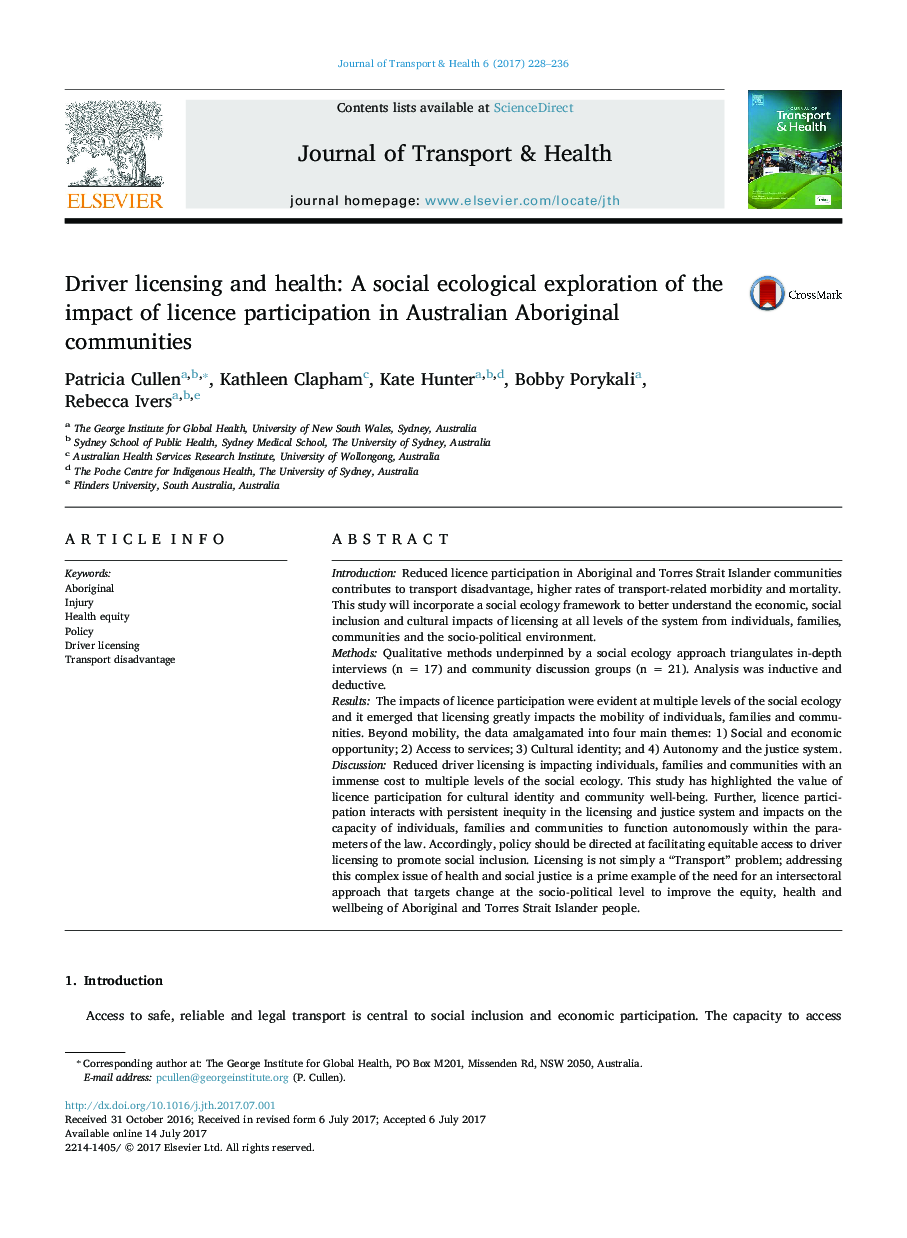| کد مقاله | کد نشریه | سال انتشار | مقاله انگلیسی | نسخه تمام متن |
|---|---|---|---|---|
| 5117658 | 1485455 | 2017 | 9 صفحه PDF | دانلود رایگان |
- Aboriginal people in Australia experience higher rates of transport injury.
- Reduced licensing in Aboriginal communities contributes to transport disadvantage.
- Licensing impacts the mobility and health of individuals, families and communities.
- Licensing is not a transport problem, it is a complex issue of health and justice.
- An intersectoral policy approach to licensing would impact equity and health.
IntroductionReduced licence participation in Aboriginal and Torres Strait Islander communities contributes to transport disadvantage, higher rates of transport-related morbidity and mortality. This study will incorporate a social ecology framework to better understand the economic, social inclusion and cultural impacts of licensing at all levels of the system from individuals, families, communities and the socio-political environment.MethodsQualitative methods underpinned by a social ecology approach triangulates in-depth interviews (n = 17) and community discussion groups (n = 21). Analysis was inductive and deductive.ResultsThe impacts of licence participation were evident at multiple levels of the social ecology and it emerged that licensing greatly impacts the mobility of individuals, families and communities. Beyond mobility, the data amalgamated into four main themes: 1) Social and economic opportunity; 2) Access to services; 3) Cultural identity; and 4) Autonomy and the justice system.DiscussionReduced driver licensing is impacting individuals, families and communities with an immense cost to multiple levels of the social ecology. This study has highlighted the value of licence participation for cultural identity and community well-being. Further, licence participation interacts with persistent inequity in the licensing and justice system and impacts on the capacity of individuals, families and communities to function autonomously within the parameters of the law. Accordingly, policy should be directed at facilitating equitable access to driver licensing to promote social inclusion. Licensing is not simply a “Transport” problem; addressing this complex issue of health and social justice is a prime example of the need for an intersectoral approach that targets change at the socio-political level to improve the equity, health and wellbeing of Aboriginal and Torres Strait Islander people.
Journal: Journal of Transport & Health - Volume 6, September 2017, Pages 228-236
